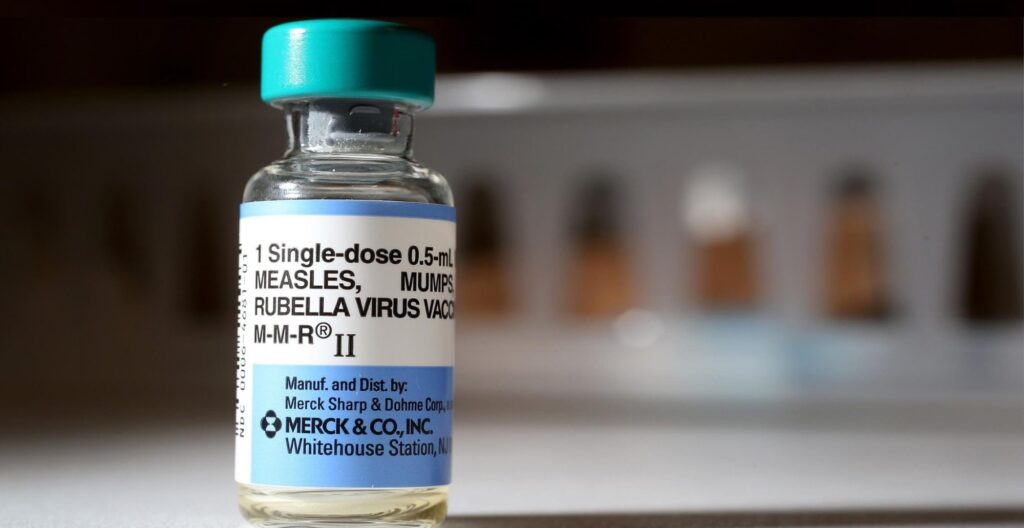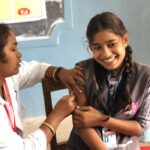The Measles-Mumps-Rubella (MMR) vaccine is a highly effective immunization that protects against three serious viral infections: measles, mumps, and rubella. These diseases can cause severe complications, including pneumonia, meningitis, encephalitis, and birth defects. Widespread vaccination has drastically reduced global cases, but vaccine hesitancy and coverage gaps continue to fuel outbreaks.

What Is the MMR Vaccine?
The MMR vaccine is a live-attenuated virus vaccine that stimulates an immune response, leading to long-term immunity. It is commonly administered in two doses during childhood but is also recommended for adults who lack immunity.
MMR Vaccination Schedule
1. Routine Childhood Immunization
- First dose: 12–15 months of age
- Second dose: 4–6 years of age
- Minimum interval between doses: 28 days
2. Catch-Up Vaccination
- Individuals who missed routine childhood doses should receive two doses at least 28 days apart.
3. Vaccination for Adults
- Adults born after 1957 without immunity should receive at least one dose.
4. Special Considerations
- Healthcare workers: Two doses required for those at risk of exposure.
- International travelers: Full vaccination before traveling to endemic regions.
- Pregnant women: Should not receive the vaccine due to live virus content.
Effectiveness and Long-Term Immunity
- One dose: 93% effective against measles, 78% against mumps, and 97% against rubella.
- Two doses: 97% effective against measles and 88% against mumps.
- Lifelong protection in most individuals.
Side Effects and Safety
The MMR vaccine has an excellent safety profile. Common side effects include:
- Mild fever
- Rash
- Temporary joint pain (more common in adults)
- Rare cases of febrile seizures (not associated with long-term harm)
Importance of MMR Vaccination in Preventing Outbreaks
The World Health Organization (WHO) and Centers for Disease Control and Prevention (CDC) emphasize achieving herd immunity, requiring 95% vaccine coverage to prevent outbreaks. Unvaccinated populations are vulnerable, leading to resurgence in certain areas.
Global MMR Immunization Efforts
- WHO Measles & Rubella Initiative aims for global elimination by 2030.
- Countries with strong vaccine programs, like the United States, United Kingdom, and Canada, have significantly reduced MMR cases.
- Barriers include misinformation, lack of access in low-income areas, and vaccine hesitancy.
The MMR vaccine is a cornerstone of public health, preventing severe diseases and complications. High vaccination rates are essential for herd immunity and global eradication efforts. Healthcare professionals, governments, and organizations must continue promoting vaccine awareness and accessibility to ensure widespread protection.

